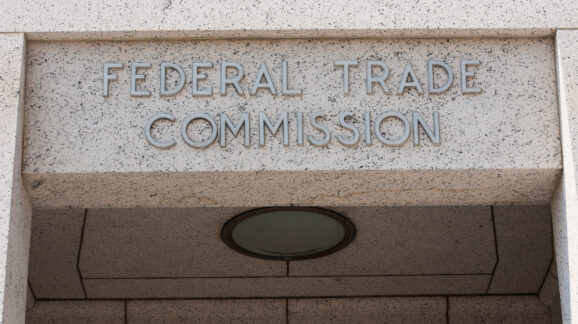Consumers get forgotten in all the politics. The best way to protect consumers is to protect an open, competitive market process, in which companies succeed or fail based not on their political connections or ideological correctness, but on how well they serve consumers.
Antitrust regulation’s problems are structural and incurable. The Competitive Enterprise Institutes advocates abolishing antitrust law, removing remaining government monopolies, and preventing the creation of new ones.
Featured Posts

Blog
Rule by Vibes, Ruined by Reality: Why the FTC’s HSR Loss Demands a Legislative Fix
The Federal Trade Commission (FTC) is doubling down on a losing hand. Despite a stinging courtroom defeat last week that vacated its 2024 premerger…

Blog
Merger relief vs. the consolidation regulators ignore
A federal court’s decision blocking a 2024 Federal Trade Commission’s expanded merger-disclosure rule is welcome. But its significance risks being overstated. Skirmishes over reporting…

Study
Zombie Antitrust: Is Robinson-Patman a Dead Law Walking?
Introduction Lawrence O’Brien, well-known confidant and aide to the Kennedys at the height of their 1960s power, entitled his political autobiography No Final Victories. What…
Search Posts
Op-Eds
Black Gold: Syriana soars on substance, sinks on politics.
Syriana opens with a throng of Arab men quarreling over the right to board a bus. The camera peers at the scene through…
Op-Eds
Point, Counterpoint: Wal-Mart on DVD
Documentary film has long been mired in debates about objectivity. Once strived for amongst serious documentarians, the notion of an objective documentary slowly degraded as…
Op-Eds
The Long REACH of the EU
The European Union's Council of Ministers is expected to vote soon on the proposed chemicals regulation called REACH, an acronym for Registration, Evaluation, and…
News Release
Bill Clinton’s Shifting Policy on Climate Change
Contacts: Marlo Lewis, 202.669.6693 (Montréal) Myron Ebell, 202.320.6685 (<?xml:namespace prefix = st1 ns = “urn:schemas-microsoft-com:office:smarttags” />Washington, D.C.)…
Op-Eds
Who’s afraid of big business?
Everybody agrees, it seems, that big business has too much influence in Washington. Most people are confused, however, as to what big business is doing…
Op-Eds
A Windfall of Bad Ideas
In the third-quarter of 2005, the major U.S. oil companies—ExxonMobil, Chevron, ConocoPhillips, BP America, and Shell Oil Company—collectively earned almost $26 billion in profits, an…
Staff & Scholars

Richard Morrison
Senior Fellow
- Antitrust
- Business and Government
- Capitalism and Free Enterprise

Iain Murray
Vice President for Strategy and Senior Fellow
- Banking and Finance
- Trade and International

Clyde Wayne Crews
Fred L. Smith Fellow in Regulatory Studies
- Business and Government
- Consumer Freedom
- Deregulation

Ryan Young
Senior Economist and Director of Publications
- Antitrust
- Business and Government
- Regulatory Reform

Jessica Melugin
Director of the Center for Technology & Innovation
- Antitrust
- Innovation
- Media, Speech and Internet Freedoms

Alex Reinauer
Research Fellow
- Antitrust
- Innovation
- Tech and Telecom